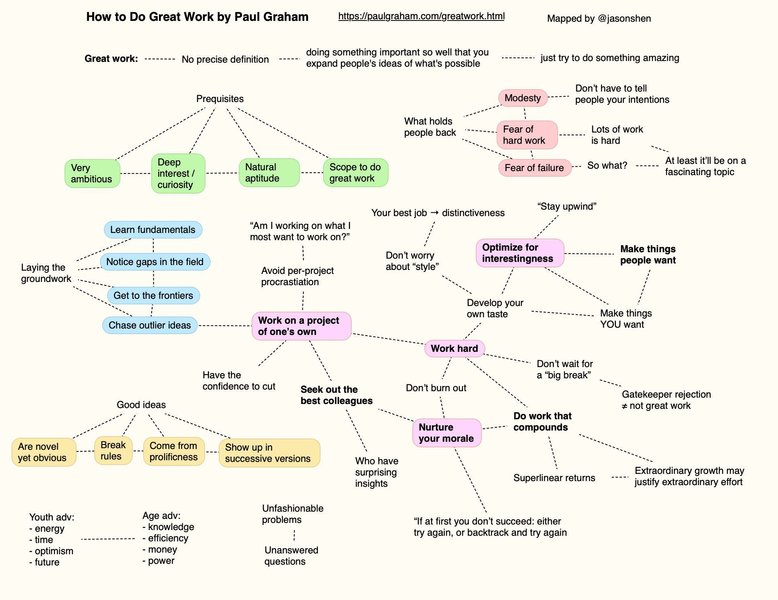This is Paul Graham.
People who've done great things tend
to seem as if they were a race apart. And most biographies only
exaggerate this illusion, partly due to the worshipful attitude
biographers inevitably sink into, and partly because, knowing how
the story ends, they can't help streamlining the plot till it seems
like the subject's life was a matter of destiny, the m... See more
to seem as if they were a race apart. And most biographies only
exaggerate this illusion, partly due to the worshipful attitude
biographers inevitably sink into, and partly because, knowing how
the story ends, they can't help streamlining the plot till it seems
like the subject's life was a matter of destiny, the m... See more
What You'll Wish You'd Known
Perhaps, if your goal is to discover novel ideas, your motto should not be "do what you love" so much as "do what you're curious about."
bad time • How to Think for Yourself
VCs are
like car salesmen or bureaucrats: the nature of their work
turns them into jerks.
like car salesmen or bureaucrats: the nature of their work
turns them into jerks.
A Unified Theory of VC Suckage
One way to discover broken models is to be stricter than other people. Broken models of the world leave a trail of clues where they bash against reality
Paul Graham • How to Do Great Work
You can't think well without writing well, and you can't write well without reading well.
Paul Graham • The Need to Read
What should you do if you're young and ambitious but don't know what to work on? What you should not do is drift along passively, assuming the problem will solve itself. You need to take action. But there is no systematic procedure you can follow. When you read biographies of people who've done great work, it's remarkable how much luck is involved.... See more
Paul Graham • How to Do Great Work

Work on hard problems, driven mainly by curiosity, but have a second self watching over your shoulder, taking note of gaps and anomalies.
Paul Graham • How to Get Startup Ideas
There are two different ways people judge you. Sometimes judging you correctly is the end goal. But there's a second much more common type of judgement where it isn't. We tend to regard all judgements of us as the first type. We'd probably be happier if we realized which are and which aren't.